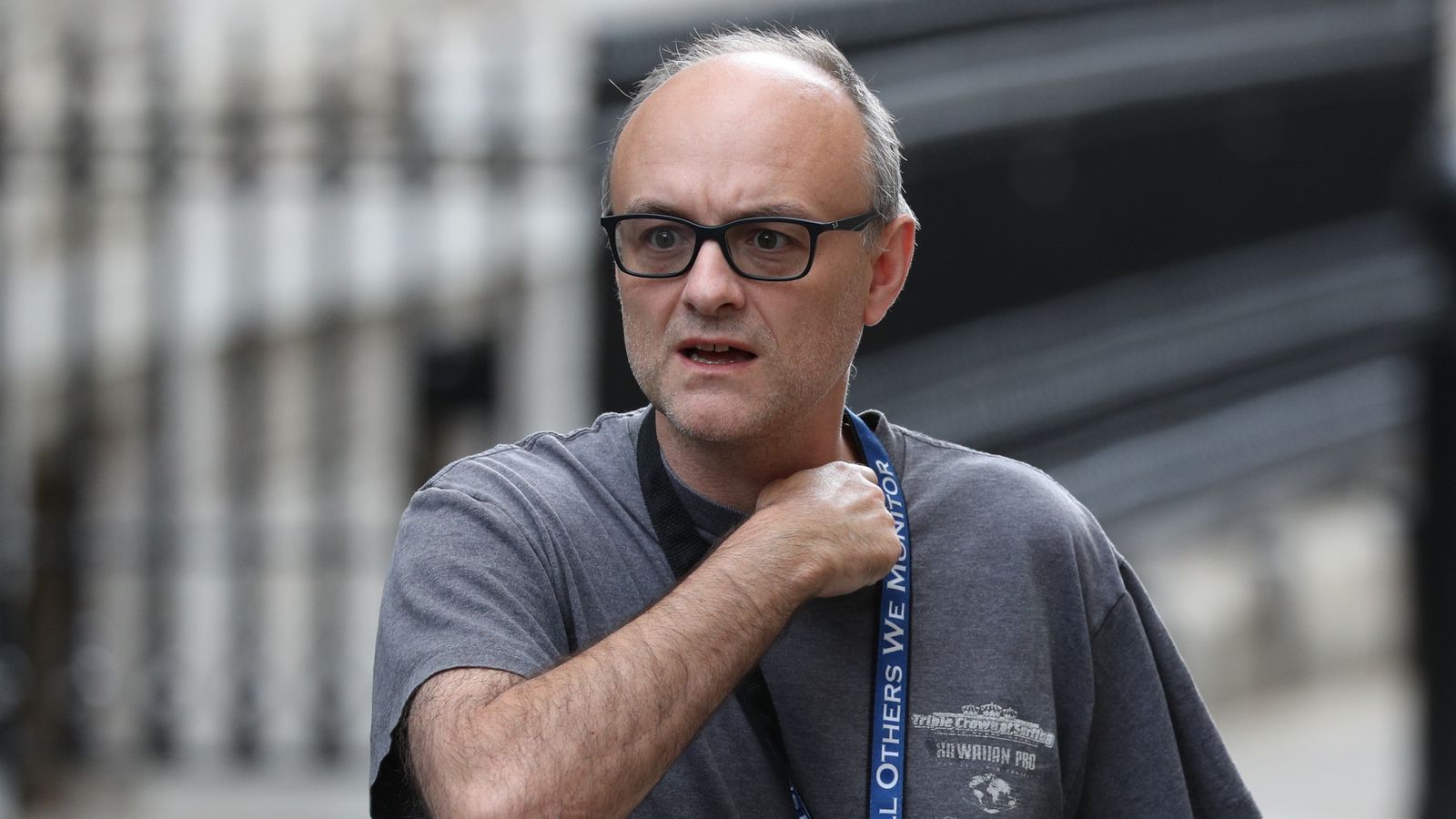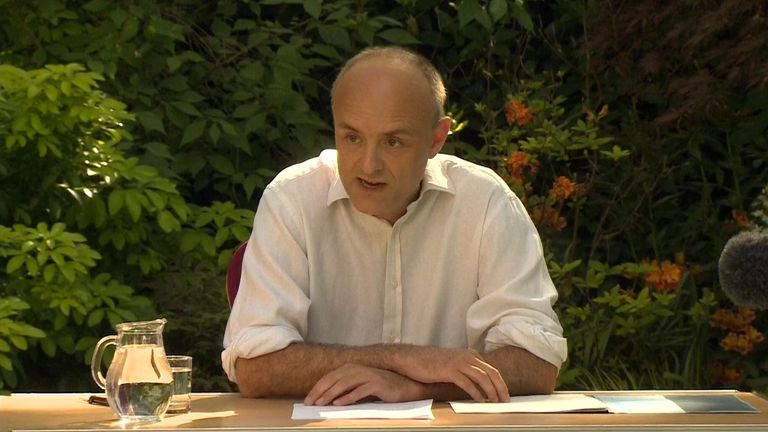Dominic Cummings’ lockdown-busting trip to Durham and Barnard Castle damaged public trust in the government’s handling of the COVID-19 pandemic, according to a new study.
Scientists from University College London (UCL) claim that confidence dropped after Boris Johnson‘s controversial adviser drove his wife and child 300 miles from London to Durham and then took a day trip to Barnard Castle.
The study coincides with a complaint to a police watchdog by witnesses who say they saw Mr Cummings on a second coronavirus lockdown trip to Durham, claiming officers did not properly investigate.
:: Listen to the Daily podcast on Apple Podcasts, Google Podcasts, Spotify, Spreaker
Dave and Clare Edwards, who have complained to the Independent Office for Police Conduct (IOPC) about Durham Police, say they are “100% certain” they saw Mr Cummings in woods near Durham a week after his Barnard Castle visit.
The Daily Mirror also reports that a third witness claims to have seen Mr Cummings in the woods that morning, 19 April. However, Mr Cummings has described allegations of a second trip as “false”.
The new academic study, published in The Lancet, reveals a clear drop in confidence in the government starting on 22 May – when the story broke – and continuing to fall quickly in the days following, according to UCL.
The authors of the study also claim it is significant that confidence in the government’s lockdown rules was more badly damaged in England by the Cummings row than in the devolved nations of Scotland and Wales.
Mr Cummings’s rule breaking also had an impact on people’s willingness to follow rules and guidelines from the government, according to members of the UCL research team.
The researchers claim there had already been a gradual decrease in public adherence to guidelines prior to the controversy over Mr Cummings’ actions, but this decline grew in the weeks following, especially in England.
In his account of his notorious trip to Durham, at a news conference in the Downing Street garden, Mr Cummings made the widely ridiculed claim that his Easter Sunday jaunt to picturesque Barnard Castle was to test his eyesight.
But Dr Daisy Fancourt, lead author of UCL’s COVID-19 social study, said: “Public trust in the government’s ability to manage the pandemic is crucial as it underpins public attitudes and behaviours at a precarious time for public health.
“Throughout lockdown it has been shown how closely public confidence is related to government announcements on COVID-19, with an initial boost as the lockdown came in, followed by a drop after 10 May as the government announced it would begin to reopen society.
“The data then shows a stabilisation and even a slight increase in public confidence in the fortnight following, but the Cummings events were followed by another sudden decrease.
“Trust in government decisions and actions relating to the management of COVID-19 is a major challenge globally and this data illustrates the negative and lasting consequences that political decisions can have for public trust and the risks to behaviours.”
UCL says its research, which started before the lockdown in March, is the UK’s largest study into how adults are feeling about the lockdown, government advice and overall wellbeing and mental health. More than 40,000 people took part.
Respondents were asked how much confidence they had in the government’s handling of the epidemic, from one (not at all) to seven (lots). And between 21 and 25 May, it dropped in England by approximately 0.4 points on this scale.
The researchers say they ascertained whether this was likely a result of a “Cummings effect” by comparing responses in England to those in Scotland and Wales, where people were asked to rate their confidence in their own devolved governments.
The result, according to the study’s authors, was that there was no evidence of a similar large drop in confidence in the governments of the devolved nations.
The authors also claim there has been no recovery from the “Cummings effect” in the weeks since his trip was revealed, with confidence in England remaining low and gaps in confidence between England and the devolved nations widening over time.
Responding to the latest Daily Mirror report, a Number 10 spokesman said: “Durham Constabulary have made clear they are not taking any further action against Mr Cummings and that by locating himself at his father’s premises he did not breach the regulations.
“The prime minister has said he believes Mr Cummings behaved reasonably and he considers the matter closed.”
A Durham Constabulary spokesman said: “As outlined in our statement of 28 May, Durham Constabulary carried out an investigation into this matter led by a senior detective and found insufficient evidence to support the allegation”.


